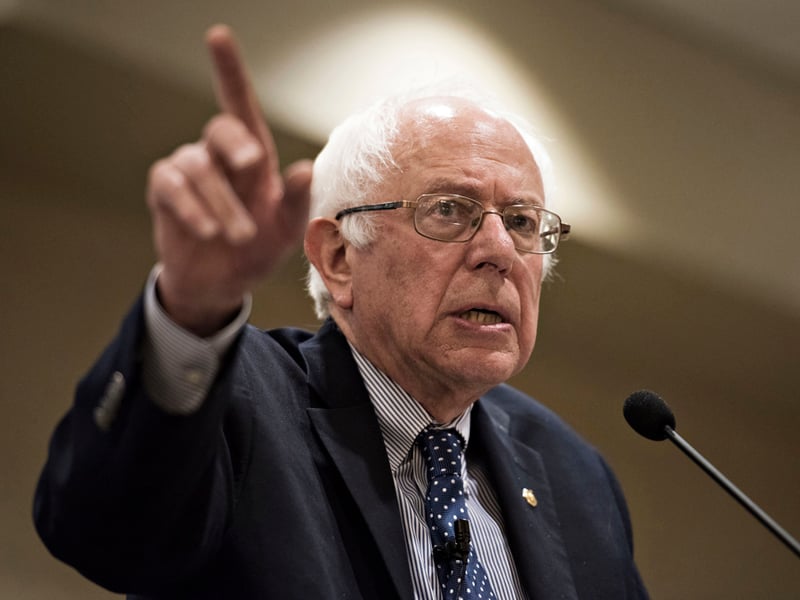Billionaires may have much more to fear from a Bernie Sanders presidency than they do from an Elizabeth Warren administration, according to two economists advising both candidates.
That's one of the conclusions of a new interactive website developed by University of California, Berkeley professors Emmanuel Saez and Gabriel Zucman.
If Mr. Sanders had his way, they calculate that the 400 richest Americans, on average, would have an effective tax rate of 97.5%. That includes not only their income, but also a wealth tax that whittles away at the family fortune.
The 97.5% average effective tax rate under
his plans compares with 23% currently and 62% under
Ms. Warren's proposals, according to the two economists.
![]()
Mr. Sanders and Ms. Warren have both pitched wealth taxes, which is a key reason that their plans tax billionaires so much more.
Ms. Warren's wealth tax places a 2% levy on fortunes above $50 million and a 3% levy on assets more than $1 billion. Mr. Sanders' plan goes further, and starts taxing wealth of $32 million at 1%, increasing to an 8% tax on fortunes above $10 billion.
[Recommended video: Biggest changes advisers should make to be successful in the future]
"With the wealth tax, you get directly at the stock instead of hitting the flow of income, making it a much more powerful de-concentration tool than income taxes," Mr. Saez said in an email about Mr. Sanders' tax, which Mr. Sanders has said would cut the number of billionaires in the country in half in 15 years.
The calculations by Mr. Saez and Mr. Zucman cover state, local and federal taxes and also treat health insurance premiums that individuals pay as a tax, arguing that they are one of main drivers of inequality in the U.S.
If
a Democrat wins in 2020, wealthy Americans would fare best if it were Joe Biden, even though the former vice president would hit the rich with a markedly bigger tax burden -- an effective average rate of 30.6%, or more than 7 percentage points higher than they face now under President Donald J. Trump.
[More: Warren's wealth tax could create compliance challenges]
Large tax increases on the rich have been a key topic in the 2020 Democratic primary as candidates have looked for proposals that would lessen inequality and raise lots of revenue to pay for expensive social programs, such as expanded health care and free college tuition.
The economists released
an interactive website Sunday that lets users select different tax rates to see how levies on various income groups are increasing. Mr. Saez and Mr. Zucman are also releasing a book Tuesday, "The Triumph of Injustice: How the Rich Dodge Taxes and How to Make Them Pay" (W.W. Norton & Co.), making the case for large tax increases on top earners.
All major Democratic candidates have called for higher taxes on the wealthy, including raising the income tax rates or increasing levies on capital gain income.
Mr. Sanders, Ms. Warren and Sen. Kamala Harris have also floated levies on stock and bond trades.
Taxes on the wealthy have historically been popular with voters. For decades a majority of polls have shown that people think the wealthy pay too little in taxes. Gallup found in April that 62% of people say that "upper-income" individuals pay too little in taxes.
[More: Financial advisers take issue with Democratic plans to tax the rich]







